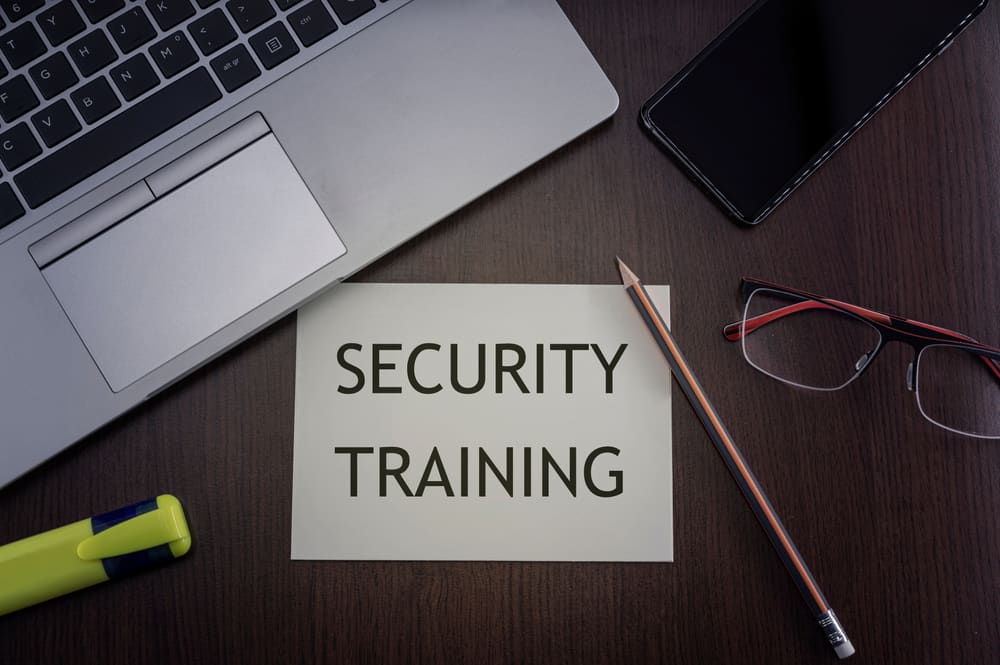
Cybersecurity for businesses has been a vital theme for many years, and it only increases with each passing year. Especially as the pandemic led to more and more employees working from home than ever before, businesses everywhere are looking to ensure that all their employees have the right training and resources when it comes to maintaining cybersecurity practices, both within the office and among remote workers.
At Onward Technology, we're here to help with a variety of IT support and managed IT services, including consulting and custom IT services for many of our Utah clients, from educational facilities to many others. We've assisted numerous entities with both initial and ongoing training for employees in several tech support areas, including cybersecurity themes that are vital across the company. What are some broad concepts that are important for any such training? Here are several to keep in mind.
First and foremost, from the time new employees are hired, their cybersecurity training should begin. This should not be a one-time event, but an ongoing process that is reinforced continually.
As with anything else related to job expectations and duties, clear communication is key in ensuring that everyone understands the importance of cyber hygiene and adheres to best practices. Management must make it clear that violations will not be tolerated and that employees will be held accountable -- but at the same time, provide support and help employees learn what they need to protect the company.
In many cases, this will involve multiple forms of communication, such as memos, emails, online resources, and face-to-face meetings. Cybersecurity is a dynamic and ever-changing field, so it's important that employees are kept up to date on the latest threats, as well as defensive measures they can take.
Especially if your business employs remote employees, but even if not, it's important to emphasize the need for good cyber hygiene habits. This includes not only safeguarding devices against malware and viruses, but also being mindful of what information is shared and where it's going.
For example, an unsecured Wi-Fi connection at a public place can easily give attackers access to your device and all the sensitive data on it. While most people are aware of the dangers of clicking on unknown links or downloading suspicious files, there are other ways to be careless with your device that can lead to a data breach.
Educate employees on how to properly care for their devices and keep them safe, both physically and electronically. This includes using strong passwords, not saving sensitive information on the device, and being aware of their surroundings when using public Wi-Fi.
For certain businesses, such as those in the medical field or with financial data, confidentiality is of utmost importance. Employees must be made aware of the sensitivity of the information they're handling and understand the consequences of sharing it with unauthorized individuals.
This involves not only educating employees on how to protect confidential data, but also having clear guidelines in place for what should and should not be shared. Make sure employees know who they can contact if they have any questions or concerns about protecting confidential information.
Another important part of employee cybersecurity training is teaching employees how to spot potential threats. This includes understanding the warning signs of a phishing attack, malware infection, or other type of cybercrime.
Employees should be familiar with what to do if they suspect they've been targeted by a cybercriminal, such as reporting it to their supervisor or IT department. They should also be aware of the resources available to them for help and support, such as the company's cybersecurity hotline.
As we've noted a couple times already due to how important this theme is, cybersecurity for a business is never a finished task. It's an ongoing process that must be constantly updated and reinforced.
One way to do this is by regularly bringing in outside experts to provide continuing education for employees. This can include topics such as the latest threats, phishing scams, and how to stay safe online.
It's also important to have a system in place for tracking employee training. This includes keeping track of when employees have been trained and what type of training they've received. This will help you ensure that everyone is up to date on the latest cybersecurity threats and best practices.
Whether for companies similar to yours or just some of the most public recent cases of data breaches, it can be helpful to use real-world examples when educating employees on cybersecurity. This will help them better understand the risks and consequences of a data breach.
It's also important to talk about how businesses can bounce back from a data breach. This includes things like crisis management plans and ways to limit the damage done. For instance, if a company in your industry has recently recovered from a data breach, you can use that as a case study to discuss how they managed and what lessons were learned.
If you're unaware of what other companies are doing in terms of data security, there are a number of resources available to you. The National Institute of Standards and Technology (NIST) has a variety of resources on their website, including the Cybersecurity Framework. This can be a great place to start when looking for ways to improve your company's cybersecurity posture.
For more on this, or to learn about any of our managed IT or tech support services in Utah, contact the pros at Onward Technology at your convenience.